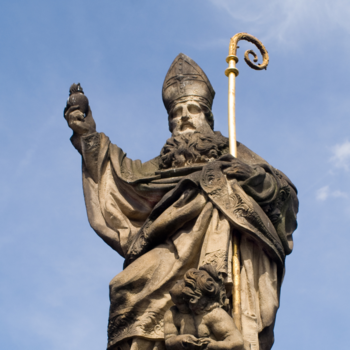Search
Pope Leo and St. Augustine
-
 August 27, 2025As we have listened to Our Holy Father, Pope Leo XIV, these last few months, we have noticed that he quotes often the Fathers of the Church and especially St. Augustine. The Fathers were influential theologians and writers, who lived primarily between the second and the seventh centuries. Pope Leo is particularly fond of St. Augustine, perhaps because he is a member of the Order of St. Augustine.
August 27, 2025As we have listened to Our Holy Father, Pope Leo XIV, these last few months, we have noticed that he quotes often the Fathers of the Church and especially St. Augustine. The Fathers were influential theologians and writers, who lived primarily between the second and the seventh centuries. Pope Leo is particularly fond of St. Augustine, perhaps because he is a member of the Order of St. Augustine.
St. Augustine of Hippo was a bishop who lived from 354 to 430 AD. Born and raised in North Africa, he lived a dissolute life until his thirties. During these years, he had been a student of philosophy and was a seeker of the truth. His mother, Saint Monica, prayed constantly for his conversion. While traveling in Italy, he experienced a profound conversion. He was baptized by St. Ambrose, the Bishop of Milan. Later he was ordained a priest and bishop. His philosophical background greatly influenced his theological thought and his voluminous writings as a bishop. He is one of the most important Church Fathers in the Latin or Western Church. He lived at a time when the Roman Empire was falling apart in the West and a great cultural upheaval was occurring. This is not unlike the great cultural upheaval we are experiencing in our own time.
I think that we will see that Pope Leo looks to St. Augustine’s theological legacy as a guiding light as he governs and steers the Church in our own time. We have already seen that Our Holy Father utilizes the firm anchor of the Fathers of the Church and other spiritual writers to teach the Faith. This movement in theology is called “resourcement.” This going back to the “sources” of theological thought was a great influence present at the Second Vatican Council as a means of presenting the eternal truths of the Faith in a way that people of our own time can understand.
In addition to being a great theologian, Our Holy Father has been a dedicated and energetic missionary as a priest and bishop. He has taken the truths of the Catholic Faith with a missionary’s zeal to the poor of Peru and now he is proclaiming the Gospel to the world as Vicar of Christ on earth.
We should listen carefully to Pope Leo’s homilies, talks and addresses to learn how he opens the treasures of the Church’s theologians and writers to guide the Church in the 21st century. He is a great gift for us all.
It would be very helpful for us to look to some of St. Augustine’s works to gain greater insight into the thought of Pope Leo. Confessions, which is St. Augustine’s autobiography, and The City of God, a treatise on the relationship of the Catholic Faith to the world, are two works that would help us to to understand St. Augustine’s thought and how it influences Pope Leo proclamation of the Gospel.
As we celebrate the Feast of St. Augustine on August 28, let us ask him to intercede for Pope Leo as he guides the Church during these turbulent times in which we live.
Most Reverend William J. Waltersheid
Auxiliary Bishop of Pittsburgh
